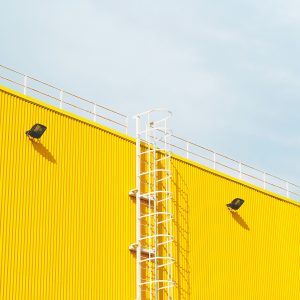
Waterproof Wire Connectors for Outdoor Lighting and Other Applications
Waterproof wire connectors are a great solution for outdoor lighting and other wiring projects that may be exposed to moisture. They are easy to use and provide a permanent, weatherproof seal between wires.
When selecting a wire connector, consider the type and size of wire it can safely accommodate. Typically, the packaging shows a list of wire combinations and sizes the nut can safely connect.
Gel-filled wire nuts
These gel-filled twist-on wire connectors prevent electrical corrosion and offer a sleek appearance. They can be used for low-voltage landscape lighting, outdoor speakers, and other projects that require a waterproof connection. They are also ideal for applications that must be buried underground. These connectors are designed to work in a variety of climates, and they are easy to use.
These connectors are a great way to splice your cables without using solder. They are easy to install and have a high-quality silicone seal. The connectors are available in a variety of sizes, and they work with most stranded conductors. They are also available in various colors to match your wires. The package will tell you what size conductors the connectors can accommodate.
The first step in installing the connectors is to turn off the power at the transformer. This will prevent electrical shocks and ensure the safety of the installer. Then, insert the ends of the wires into the connectors and twist them together. Then, crimp the connectors with a crimping tool and apply pressure. After the connectors are crimped, they will be secure and ready for buried installation.
To choose the right wire nut for your project, look at the color and gauge of the spliced cables. The color indicates the type and size outdoor waterproof wire connectors of wire that the splice can handle, so it is important to determine what types of cables you are connecting. You should also pay attention to the number of wires that you are connecting.
Push-in wire nuts
If you’re working on a project outdoors, there’s a good chance that the wire connectors you use will come into contact with water. Whether it’s humidity, rain, or snow, electrical connectors that are exposed to moisture can cause problems such as corrosion and short circuits. To prevent this, you can use waterproof wire nuts that create a secure seal to keep out moisture and contaminants.
These connectors are designed to be used with either solid or stranded copper wire. They are also approved for direct bury applications and can accept 12-22 AWG solid or stranded wire. They also have a bottom cover to ensure that the connectors are waterproof.
The connectors are sold in a variety of colors, which indicates the size and number of wires that each can accommodate. It’s important to choose the correct color for your wires because using a nut that is too small can damage the wire and lead to a poor connection, or a nut that is too large could be a fire hazard.
While some installers still prefer to use tape in place of wire nuts, this can be dangerous. Using tape instead of a wire nut will weaken the splice and leave it vulnerable to the elements. If you need to use tape, make sure it is a high-quality electrical tape.
Winged wire nuts
The outer shell of these wire connectors provides a waterproof and insulating barrier against moisture, dirt and dust. They also work well for underground wiring installations. They can be installed in dry or wet locations and are ideal for direct burial applications. They are filled with a mixture of dielectric silicone sealant and a solid plastic inner core to ensure a secure connection that won’t leak or break.
These wire connectors are made from a rigid and flame resistant insulating thermoplastic material that is easy to handle. The outer plastic encases a metal square spring insert that threads the wires together and makes an electrical contact. It is important to tighten the connector properly to make sure it won’t come apart. If the connections are not tight enough, they could cause arcing and fire hazards.
Unlike standard twist-on connectors, these have wings or protrusions on the cap to make it easier to grip and turn. This can reduce hand fatigue and makes installation faster, especially when working with gloves. This type of connector is often used in landscape projects and helps to prevent the exposed ends of the wires from touching each other, which can create a fire hazard. They are also great for connecting low volt lighting and irrigation wires to an outdoor transformer or deep cycle battery.
Weatherproof wire nuts
Whether you’re working in a wet location or underground, protecting your electrical connections from moisture is essential. Fortunately, waterproof wire connectors can help you create a durable seal that keeps moisture out and your wiring safe from failures and corrosion.
The best waterproof wire nuts are made of materials that resist corrosion and can withstand harsh outdoor conditions. They also have a tight fit that holds the cable in place and prevents it from leaking. If you’re using waterproof wire nuts in an outdoor installation, it’s important to follow the manufacturer’s instructions carefully.
Waterproof wire nuts work with a variety of cable sizes and gauges. To choose the right ones for your project, determine the type and size (gauge) of the wires you want to connect and count how many waterproof bulkhead connectors you’ll need to attach. The packaging of each device will usually include a chart or list that indicates the minimum and maximum wire combinations and sizes it can safely accommodate.
Waterproof connectors are easy to install and eliminate the need for time-consuming products like heat shrink, tape and adhesives. They can be used in a variety of applications, including above-grade and interior/exterior connections that are exposed to damp/wet environments, as well as underground direct burial. They are also ideal for landscape lighting, irrigation valves and low volt patio and deck lighting.



